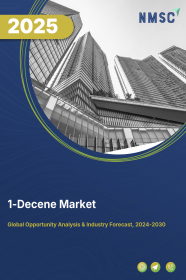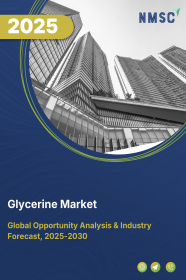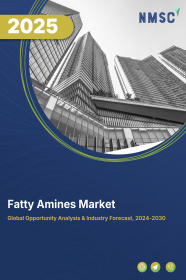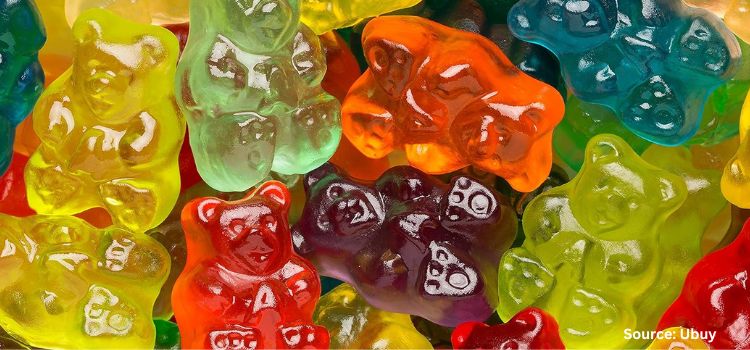
1-Decene Market by Application (Plasticizers, Polyethylene, Synthetic Lubricants, Detergents, and Surfactants and Others), by Derivative (Polyalphaolefins, Oxo Alcohols, Linear Alkyne Benzene, Linear Mercaptans, Chlorinated Alpha Olefins, and Others), by Method of Production (Catalytic Cracking, Oligomerization of Ethylene, and Others) - Global Opportunity Analysis and Industry Forecast 2024- 2030
US Tariff Impact on 1-Decene Market
Trump Tariffs Are Reshaping Global Business
Market Definition
The global 1-Decene Market size was valued at USD 0.88 billion in 2023 and is predicted to reach USD 1.33 billion by 2030 with a CAGR of 6.1% from 2024-2030. 1-decene is an alkene that consists of a chain of ten carbon atoms. The chemical formula for this alkene is C10H20 and is produced through oligomerization of ethylene or catalytic cracking. It is an industrial-essential isomer with a variety of commercial applications such as in the production of epoxides, oxo alcohols, amines, synthetic lubricants, synthetic fatty acids, and alkylated aromatics. Also, it is used in the manufacturing of surfactants and polyalphaolefin synthetic lubricant base-stock.
Market Dynamics and Trends
The demand for 1-decene is rising due to the increase in the adoption of low-density polyethylene for manufacturing kitchen appliances and the production of grease, engine oils, and other lubricants. At the same time, the rise in consumption of synthetic lubricants in the cosmetics, food & beverage, and automotive industries supports the expansion of the 1-decene market.
Also, reductions in raw material prices are expected to fuel the global 1-decene market demand during the forecast period. These materials have an advantage over other conventional materials owing to their better elasticity, transparency, heat resistance, and mechanical qualities.
In addition, they are more efficient than traditional materials and are widely used in the synthesis of organic perfumes, flavors, oil, pharmaceuticals, resins, and dyes. These, along with their growing usage as a monomer in copolymers, and high-performance synthetic lubricants in marine applications, industrial gear systems, transmission engines, and aviation drive the growth of the 1-decene market.
On the other hand, factors such as weaker economic development in major markets throughout the world, lack of on-purpose production processes, fluctuation of raw material costs, and high cost of catalysts are expected to restrain the growth of the market during the forecast period. Nevertheless, growing R&D investments for the development of alpha-olefins and the growth in the wind power industry are expected to generate demand potential for the 1-decene business in the coming years.
Market Segmentations and Scope of the Study:
The 1-decene market is classified based on application, derivative, method of production, end user, and geography. Based on application, the market is divided into plasticizers, polyethylene, synthetic lubricants, detergents and surfactants, and others. Based on derivative, the market is segmented into polyalphaolefins, oxo alcohols, linear alkyne benzene, linear mercaptans, chlorinated alpha olefins, and others.
Based on the method of production, the market is divided into catalytic cracking, oligomerization of ethylene, and others. Based on end-users, the market is categorized into the food & beverage industry, pharmaceutical industry, paints & dyes industry, and others. The geography breakdown and analysis of each of the aforesaid segments includes regions comprising of North America, Europe, Asia-Pacific, and RoW.
Geographical Analysis
Asia-Pacific holds the lion's share of the 1-decene market at present and is expected to continue dominating the market during the forecast period. The fact that emerging and developed nations including China and India generate huge demand for 1-decene, drives the market growth in this region.
In addition, keeping the population in hindsight, a rise in per capita income, strong governmental support, and production of polyalphaolefins (PAO) for automotive and manufacturing businesses have further uplifted the 1-decene market growth. Also, rising demand for the chemical intermediate from various industries is going to drive the market in the forecast period.
However, North America is expected to show a rapid increase in market growth. This region has a vast industrial base for PAOs and oxo alcohols. Furthermore, the continuous expansion of oil & gas and petrochemical infrastructure in countries such as the U.S., Canada, and Mexico has contributed to the growth of the market in this region.
Competitive Landscape
The 1-decene market comprises major players including Sabic, Sea-Land Chemical Company, PJSC Nizhnekamskneftekhim, Royal Dutch Shell, Exxon Mobil Corporation, Chevron Phillips Chemical Company LLC, Alfa Aesar, Merck Group, Toronto Chemical Industry Company Limited, and Spectrum Chemical Mfg. Corp. The increasing demand from the automotive industry, aeromechanics, and the rise in awareness regarding the use of environment-friendly products is anticipated to boost the market growth.
Moreover, these market players are adopting various collaboration strategies and planning an expansion of business across various regions to maintain their dominance in the 1-decene industry. For example, in February 2021, Chevron Phillips Chemical Company LLC announced that they had completed the acquisition of BioTelemetry, one of the leading U.S.-based providers of remote cardiac diagnostics and monitoring. The acquisition aims to transform the delivery of care and health continuum with integrated solutions across healthcare centers.
Key Benefits
-
The 1-decene market report provides a quantitative analysis of the current market and estimations through 2024-2030 that assist in identifying the prevailing market opportunities to capitalize on.
-
The study comprises a deep dive analysis of the 1-decene market trend including the current and future trends for depicting the prevalent investment pockets in the market.
-
The information related to key drivers, restraints, and opportunities and their impact on the 1-decene market is provided in the report.
-
The competitive analysis of the market players along with their market share in the 1-decene market.
-
The SWOT analysis and Porter's Five Forces model are elaborated in the study.
-
Value chain analysis in the market study provides a clear picture of the stakeholders’ roles.
1-Decene Market Key Segments
By Application
-
Plasticizers
-
Polyethylene
-
Synthetic Lubricants
-
Detergents and Surfactants
-
Others
By Derivative
-
Polyalphaolefins
-
Oxo Alcohols
-
Linear Alkyne Benzene
-
Linear Mercaptans
-
Chlorinated Alpha Olefins
-
Others
By Method of Production
-
Catalytic Cracking
-
Oligomerization of Ethylene
-
Others
By End-User
-
Food & Beverage Industry
-
Pharmaceutical Industry
-
Paints & Dyes Industry
-
Others
By Geography
-
North America
-
U.S
-
Canada
-
Mexico
-
-
Europe
-
UK
-
Germany
-
France
-
Italy
-
Spain
-
Rest of Europe
-
-
Asia-Pacific
-
China
-
India
-
Japan
-
South Korea
-
Australia
-
Rest of Asia-Pacific
-
-
RoW
-
UAE
-
Saudi Arabia
-
South Africa
-
Brazil
-
Remaining Countries
-
Key Players
-
Sabic
-
Sea-Land Chemical Company
-
PJSC Nizhnekamskneftekhim
-
Royal Dutch Shell
-
Exxon Mobil Corporation
-
Chevron Phillips Chemical Company LLC
-
Alfa Aesar
-
Merck Group
-
Toronto Chemical Industry Company Limited
-
Spectrum Chemical Mfg. Corp.
REPORT SCOPE AND SEGMENTATION:
|
Parameters |
Details |
|
Analysis Period |
2023–2030 |
|
Base Year Considered |
2023 |
|
Forecast Period |
2024–2030 |
|
Market Size Estimation |
Million (USD) |
|
Market Segmentation |
By Application (Plasticizers, Polyethylene, Synthetic Lubricants, Detergents, and Surfactants and Others), by Derivative (Polyalphaolefins, Oxo Alcohols, Linear Alkyne Benzene, Linear Mercaptans, Chlorinated Alpha Olefins, and Others), by Method of Production (Catalytic Cracking, Oligomerization of Ethylene, and Others), by End-User (Food & Beverage Industry, Pharmaceutical Industry, Paints & Dyes Industry, and Others) |
|
Geographical Segmentation |
North America (U.S., Canada, Mexico) Europe (UK, Germany, France, Italy, Spain, Rest of Europe), Asia-Pacific (China, India, Japan, South Korea, Australia, Rest of Asia-Pacific), Rest of the World (UAE, Saudi Arabia, South Africa, Brazil, Remaining countries) |
|
Companies Profiled |
Sabic, Sea-Land Chemical Company, PJSC Nizhnekamskneftekhim, Royal Dutch Shell, Exxon Mobil Corporation, Chevron Phillips Chemical Company LLC, Alfa Aesar, Merck Group, Toronto Chemical Industry Company Limited, and Spectrum Chemical Mfg. Corp. |

















 Speak to Our Analyst
Speak to Our Analyst




















